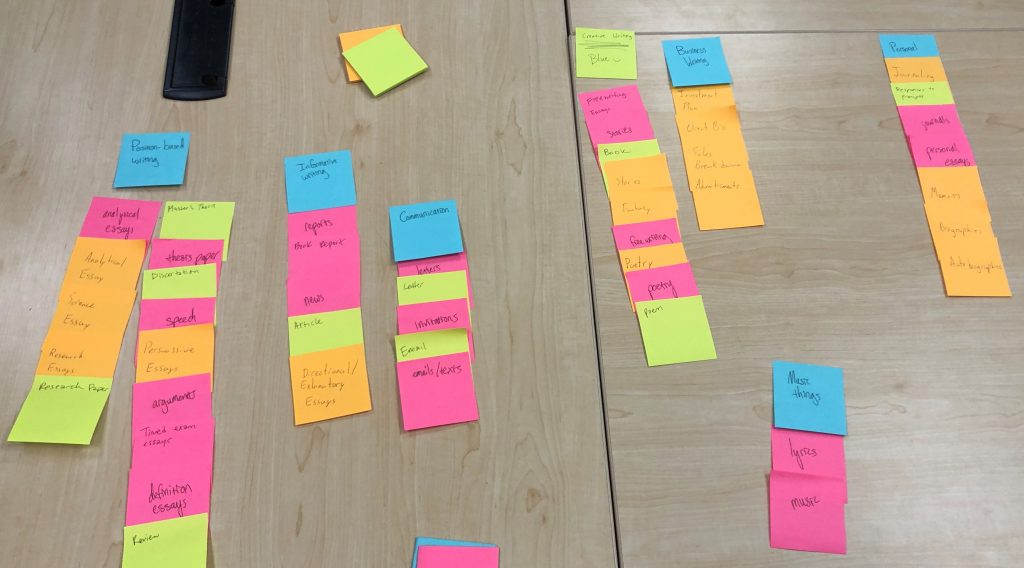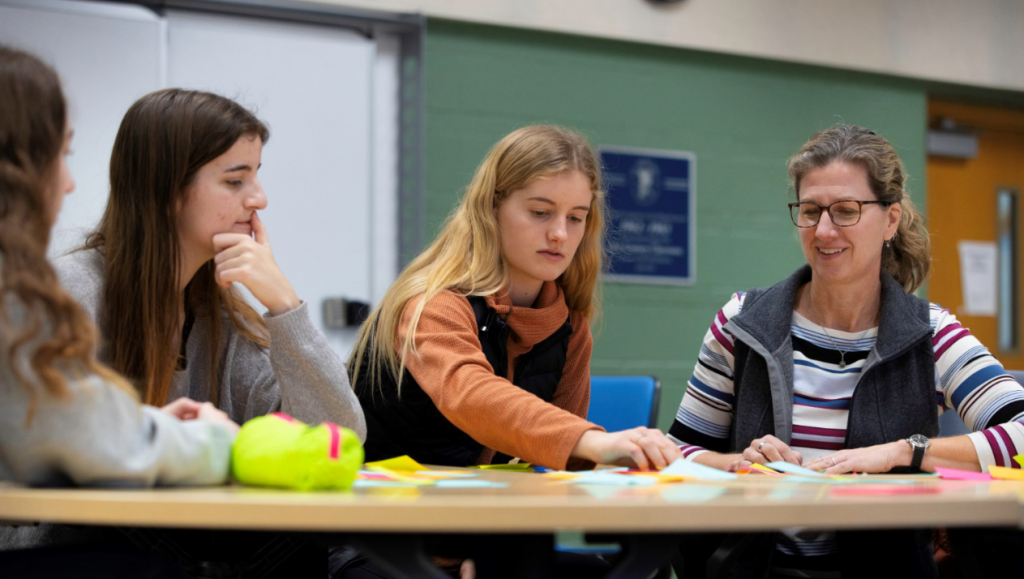I’m always looking for ways to improve my teaching—that is, to improve the learning my students signed up for. So it’s handy to be part of a faculty learning community that comes together to read Small Teaching by James Lang. Chapter 2 is about “predicting.” Lang suggests that if we ask learners to make predictions about upcoming content, theory, or practice, for instance, we are giving them opportunities to increase both knowledge and understanding. This is because prediction activities can strategically engage a learner’s curiosity and emotional connections to the subject. I can even just spur students to pay attention (p. 43).
A few weeks into Teaching the Writing Process, a 300-level
course to train writers to be writing tutors, we have what I call Composition
Theory Day. I present a framework many writing critics use to analyze and
evaluate writing. Pretty dry sounding, right? Well, when I previewed the
“Predicting” chapter from Small Teaching,
I knew I could do something different to better engage my students’ attention,
curiosity, and even emotions. Then maybe the lesson wouldn’t be so, well,
lesson-y.
I brought to class several sticky-note pads. I asked the
students to write on individual sticky notes all the different things people
write. They came up with emails, plays, business plans, research papers, book
reviews, poems, and plenty more. Then I split them in groups of three to
categorize their post-its. Their only instructions were to group like-writings
together—and they went along with my experiment of not telling them what specific
categories to create. They had to create categories based what they saw in
front of themselves. They gathered the notes into groups and on a new sticky
note named the category.

The debrief was fascinating. Not only did they name similar categories different things, but they made up their own rules for categorizing. While one group put “poems” in a “Creative Writing” category, another put the three post-its stating “poem” in three different categories. It didn’t matter to me; I wanted them to experience thinking through categorizing something they were familiar with in order to be prepared to see how professionals might do a similar thing. They created categories such as Personal, Business Writing, Information Writing, Communication, and the intriguing Position-Based Writing. But content-wise, it didn’t matter to me what they called things. I wanted them to experience a process that would position them to engage with new ideas, those dry writing theory ones, with interest.

Since they knew it was an experiment, I later asked the
students how it went:
- “At the time I didn’t make the connection between the different
types of writing we were brainstorming and the four lenses scholars use to
think about writing, but I can see how they are useful to each other. Knowing
about all of the different types of writing … and knowing how to look at
writing through the four lenses of Universe, Work, Artist, and Audience will
prove useful in understanding and assessing the needs of writing pieces,
whether our own or those of writers we are helping at the tutoring station.” - “I really enjoyed the post-it experiment for multiple reasons.
Having to think and write all of the different things one can write forced me
to expand my perception of writing—it’s not something you do in school, but a
lifelong activity and skill that you can improve. I also enjoyed seeing the
different ways people grouped them and organized them—and how perhaps that
translates to how they handle other activities/organize and complete
schoolwork…. It helped me understand the kinds of writing we’d encounter as
tutors—and whether the writers need to be professional and formal, or personal
and expressive.” - “I think the structure of it really worked. I liked that we
had time to come up with our own ideas, but only a few minutes to keep it
focused and productive. Grouping them with a couple partners also worked
because we got to see the different ways we viewed writing and we had more to
think about when categorizing. I also really enjoyed when we got to view the
other team’s final result, because I found even more I hadn’t considered, and I
loved their method of grouping. The activity left me wondering about my
personal lens which I view writing through and why it’s developed the way it
has”
The students were energetic and engaged, and in their words, “it helped me understand,” “the activity left me wondering,” and “knowing how…will prove useful.” I’ll be doing this again.
Ellen Sprague is an associate professor of writing in
the Center for Teaching and Learning, and she loves to try new teaching
strategies.
